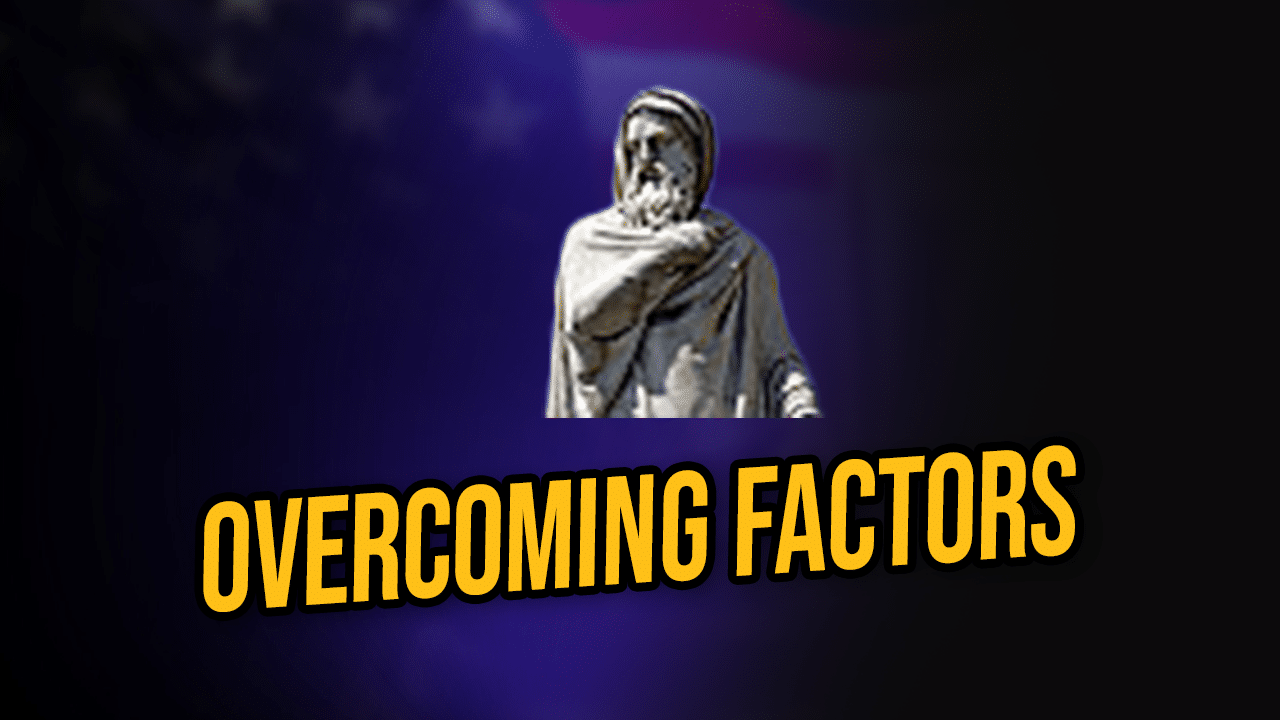
18 Sep Prison and Overcoming External Factors
Until I started learning more about Stoic Philosophy I never realized how many aspects of life that cause me stress are external – out of my control. Now that I am becoming more aware of this, I hear about ‘externals’ in conversations all the time. Throughout the hallways, when inmates are yelling on the phone, I hear it on the track – people are upset about occurences which they have no control over. There are so many things that we cannot control, and the list gets multiplied when you’re incarcerated.
I have a wonderful family backing me up, working diligently with me to hold together everything back home. They are doing a fantastic job, things are going as well as I could hope for…and many inmates don’t have that. Many of them were arrested, hauled off to prison, and had no time, or no one, to help get their personal affairs in order. I hear stories of homes being ransacked, cars stolen, titles transfered, everything – gone. Having as much of your former existence as possible to come back to provides a semblance of peace in here, and on the flip side I feel tremedously bad for those who will come ‘home’ and have to rebuild starting with zero. Losing control of not just your former life, but also many freedoms in here, is something I underestimated.
Letting go of that which is beyond my control and not getting worked up about it is a challenge. The solution is an inherently simple concept – look at externals without attachment. If it is not within our power, and we cannot control it, we can’t rely on a given outcome for happiness. I could instead prefer certain things occur, but how do I do that without then being attached to the outcome?
Preferences and attachments are different. If you are attached to something, you’re making your happiness rely on it. If you simply prefer something, it is pleasing when it occurs, and you are unaffected when it does not. Again, easy to understand, harder to practice. There is much energy wasted thinking about factors beyond our control, while also not being aware of those that are in our control. *Hint hint – our emotions and how we respond.
A passage that really knocked me over in this regard: “He who has so little knowledge of human nature, as to seek happieness by changing any thing but his own dispositions will waste his life in fruitless efforts, and multiply the griefs which he proposes to remove.” Ugh, I get it. I hear it, I see it, I understand it, why is that so difficult? Is that the solution to my being in prison? To frequently waking up thinking about what I may be missing out on, what I have lost and what the future will (or will not) hold? To simply change my disposition? I mean, if I can do that it certainly sounds like a good idea to be utilizing. But I can. I don’t need to think about what I’m missing out on, instead I can think of what I will come back to. I don’t have to think about what I lost, I can have gratitude for what I have. I can prepare for the future while being aware that needlessly worrying won’t benefit me, or create any desired outcome.
Yankton FPC constantly changes it’s policys: adjust our controlled movement schedule, cancel rec times, change covid protocols – all of the above occur so frequently and as one would assume with zero input from inmates. The fact alone that a minimum security prison is on a controlled movement schedule is overly restrictive and unwarranted. I would like to say that we are beyond powerless, and we are in the literal sense of the word, but not necessary in the figurative sense. It used to frustrate me to no end when the above incidents occured. However, I am learning that the frustration unto itself serves no purpose. This thought from Seneca comes to mind every time I am frustrated by something I know I have no choice in. “And if it has to do with something not up to us, let the thought be close at hand that it is nothing to me.”
If it is not up to me, let it go. If I let my happiness depend on something out of my control, I should change my thinking and instead prefer an outcome. When that outcome doesn’t occur, I won’t be as phased, I just had a preference. Mentally, this is the best way I have found for how to deal with how powerless we are to all the changes occuring, and how these changes often go against what we are hoping for.
This works well for me here, but it is also something I think I can use to instill a lot of tranquility in my life with when this is over. I want to live with less stress (who doesn’t?), to be less swayed by situations I have no power over, and to simply let things I can’t control have as little effect on me as they should. I used to complain about the weather a lot…why?!? What purpose did it serve? Didn’t make a sale at work, I would ruminate on it far too much. I can’t control the temperature or whether someone wants to work with me or not? So why would I let something like that put my happiness on the line?
If it can make your heartbeat slow down just a little bit, let you exhale a sigh of relief in a stressful time, or put a smile on your face when you would otherwise be frustrated, it’s worth the effort. Even if you feel like you’re giving in, maybe you’re actually winning.

